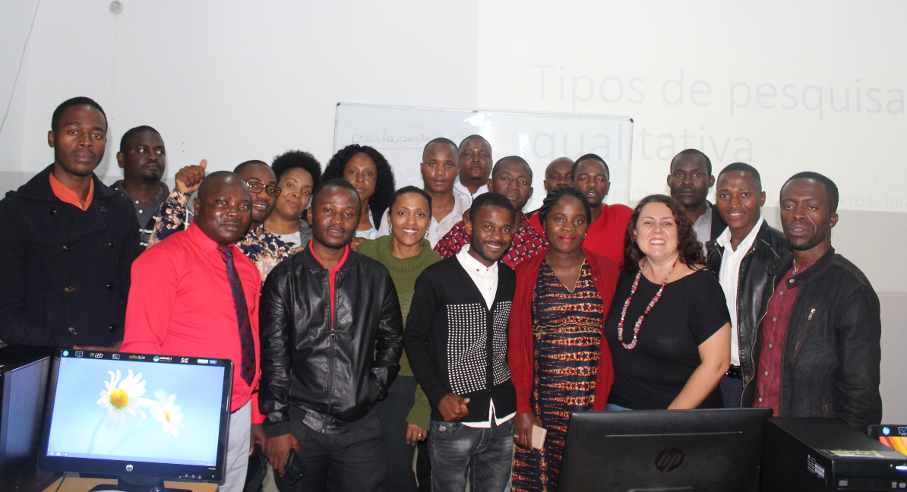PUCRS shares practical know-how with Instituto Superior Politécnico Sol Nascente
 The Professor of the Graduate Program in Letters, Dr Claudio Primo Delanoy and the collaborating Professor of the Graduate Program in Education Dr Pricila Kohls dos Santos went to Huambo, Angola, earlier in March, to teach short-term graduate and undergraduate courses at the Instituto Superior Politécnico Sol Nascente. The School of Humanities has been partners with the Angolan institution since Jun 2018. The partnership was set up in an effort to share theoretical and practical insights from PUCRS and collaborate with the development of the graduate curricula at the Angolan institution.
The Professor of the Graduate Program in Letters, Dr Claudio Primo Delanoy and the collaborating Professor of the Graduate Program in Education Dr Pricila Kohls dos Santos went to Huambo, Angola, earlier in March, to teach short-term graduate and undergraduate courses at the Instituto Superior Politécnico Sol Nascente. The School of Humanities has been partners with the Angolan institution since Jun 2018. The partnership was set up in an effort to share theoretical and practical insights from PUCRS and collaborate with the development of the graduate curricula at the Angolan institution.
Pricila taught a course of the certificate program in Didactics of Scientific Investigation in Higher Education, as she addressed the different paradigms of scientific investigation. The audience was mostly comprised of higher education faculty, but some basic education teachers were present, too. “This exchange of experiences was quite enriching both personally and academically. It’s been an opportunity to learn and put in practice intercultural competences, since the reality and the context of Angola are very different from those of Brazil, especially the reality of PUCRS”, she comments.
 In her view, students participated a lot. They were also very critical and aware that it is through education that they will be able to improve their lives and their surrounding reality. “They are strongly committed and concerned about the importance of research to change / improve their contexts”, she adds. Priscila also paid a visit to Basic Education School Deolinda Rodrigues. To her mind, that was quite a lovely and touching experience. “The school does not have many resources but teachers do a great job to value education with students”, she says.
In her view, students participated a lot. They were also very critical and aware that it is through education that they will be able to improve their lives and their surrounding reality. “They are strongly committed and concerned about the importance of research to change / improve their contexts”, she adds. Priscila also paid a visit to Basic Education School Deolinda Rodrigues. To her mind, that was quite a lovely and touching experience. “The school does not have many resources but teachers do a great job to value education with students”, she says.
Dr Delanoy taught courses on the Theories of Text and Discourse for undergraduate students in the Law School program as well as Political Sciences and Sociology programs. He addressed topics such as object naming, ethos in discourse and the means of presentation of discourse, in an argumentative perspective. The topics were chosen to address concepts of the theories that underlie a deeper analysis of literary and non-literary texts. “Students were very motivated and actively engaged in the classroom activities. The students’ active engagement shows how much they can develop”, Delanoy says.